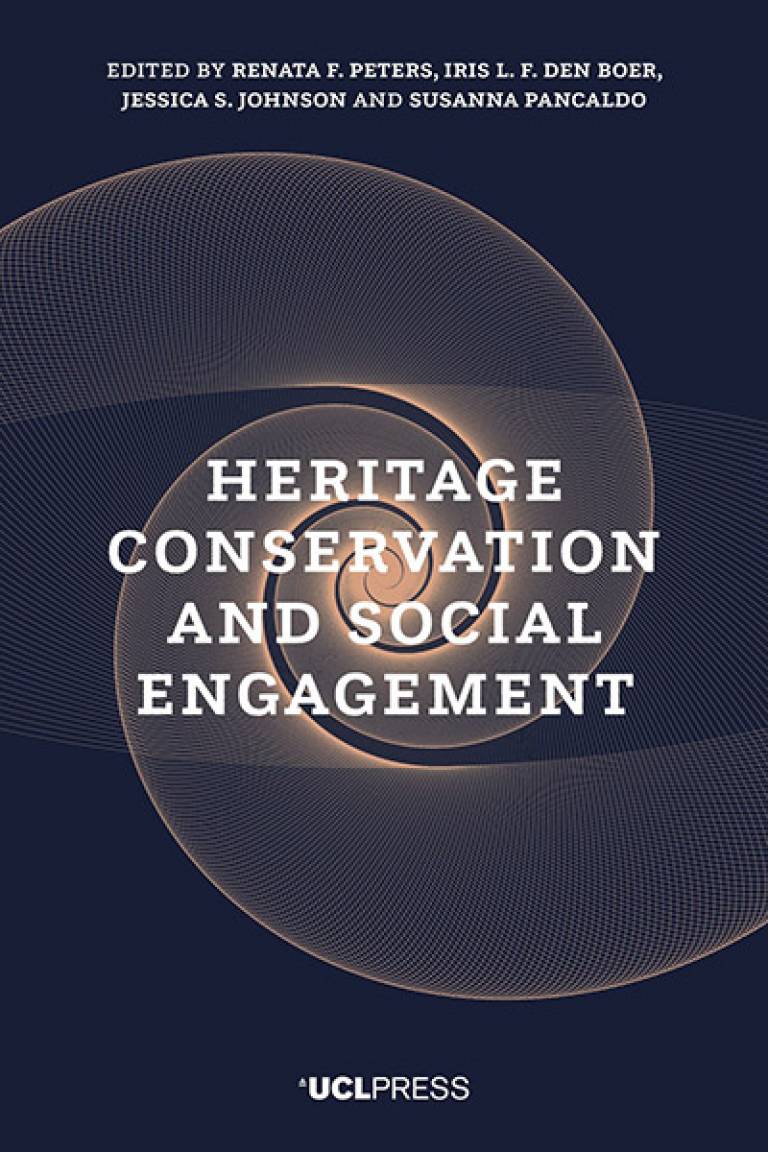Heritage Conservation and Social Engagement
17 December 2020
A new open access volume, Heritage Conservation and Social Engagement, has been published recently by UCL Press.

Heritage Conservation and Social Engagement, edited by Renata F. Peters, Iris L. F. den Boer, Jessica S. Johnson, and Susanna Pancaldo is now available.
The publication explores different kinds of social engagement motivated by the practice of heritage conservation, especially in areas of the world where heritage and museum collections show potential to be used as tools for social empowerment. The topics and ideas discussed were introduced in the conference ‘The Social Impact of Cross-disciplinary Conservation’ in 2014, which was organised by the UCL Conservation and Development Research Network (CDRN) and supported by a UCL Grand Challenges Small Grant (Intercultural Interaction) and the UCL Institute of Archaeology.
Today, museum professionals increasingly endeavour to develop collaborative and inclusive approaches to all aspects of the material under their care. Efforts to promote inclusion and engagement in museums are likely to become even more socially relevant in the near future, as in recent years we have observed a rise in intolerance towards minority groups in traditionally democratic societies. These sentiments are often stimulated by biased opinion-makers or even fake news, and frequently underpinned by socio-economic problems provoked by austerity. The heritage sector needs to respond strongly, as it has tools to help fight prejudices, which are invariably based on ignorance, misinformation, or manipulation of facts. This book joins these efforts, in the knowledge that nothing can be done without dialogue and engagement.
The book is structured around the themes of engagement and participation, as well as the significance of working collaboratively across disciplines. The contributors offer original analyses and present international perspectives that may be relevant and adaptable to different contexts. They also provide socio-cultural perspectives on conservation practices and explore development, engagement, wellbeing, recovery, and reconciliation. Their underlying commonality is the emphasis on the value of cross-disciplinary collaborations and the adoption of more encompassing approaches to decision-making.
The fully open access monograph may be downloaded from the UCL Press website.
 Close
Close

